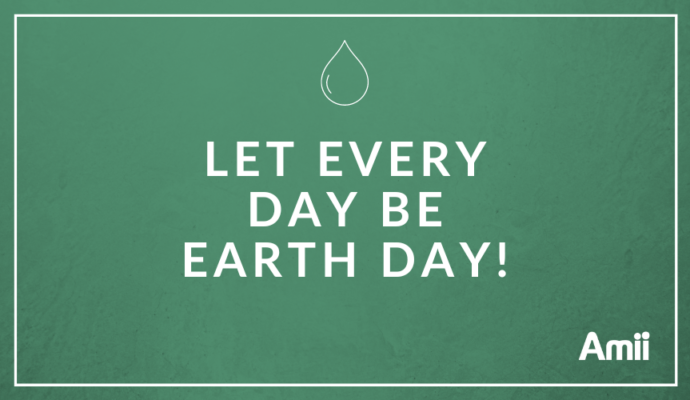Soft water – myths and realities
Before you buy a water softener for your home or apartment, you usually search the web for the one that will tick all the boxes. During your hunt, you come across some statements suggesting that softened water may not necessarily serve you well nor the fittings and pipes in your house.
To every future water softener owner out there – we know how hard it is to debunk all the fake news and verify factual info on soft water. Hence, in this article, we will address the most popular myths, gossip and misconceptions regarding the whole-house water softeners and their impact on your health.
Myth 1: Soft water tastes salty
It is not true, softened water does not taste salty at all. It contains sodium ions, as they take part in the softening process. However, the amount of sodium you will find in the treated water does not change the water taste nor influences your health.
If you wonder how the softening process work exactly, you may want to read this article: What is a water softener and how does it work?
Myth 2: Soft water is a no-go on a low-sodium diet
Water softeners are told to put salt in the water. The average amount of sodium in softened water is too low to be ever considered harmful or have any impact on your health. Three liters of softened water contain as much sodium as a slice of bread. If you compare it with your average daily intake of salt, you will learn that you provide way more sodium with the meals than by drinking softened water.
If you happen to have sodium imbalances, it seems wise to include the sodium absorbed with soft water within your food regime. It doesn’t mean, though, that you must give up on drinking softened water. If you like its tastes, a rough control over your daily sodium intake will do the job.
Myth 3: Soft water is sterile and potentially harmful to your health
This is a popular misconception. How come is it still around? It’s because of a lack of knowledge on how the water softening process works. Whenever you read or hear that a softener removes calcium and magnesium from the water, you might think that it eliminates nutrients essential for our health.
The reality is that the calcium and magnesium minerals present in hard water are of little benefit to us. They do not absorb as well as those taken in with food. Softened water helps to retain minerals and nutrients in food when used for cooking and serving drinks.
Myth 4: Soft water washes off the soap poorly and leaves a film on your skin
Not true. Soft water preserves the skin’s natural protective sebum layer. Therefore, the filmy-like sensation on your skin is not a soapy residue, but a cleansed skin with a natural, lipid shield.
The additional benefit is that soft water helps the beauty products work more efficiently. Not only you will use half of the batch than usual, but the shower gels and soaps will also lather better and cleanse more effectively.
Myth 5: Soft water needs to be remineralised before drinking
No. It strictly depends on your personal preferences. If you don’t like the taste of soft water, install a reverse osmosis filter with a remineralisation cartridge under the kitchen sink. This way you will have easy access to better-tasting water, and your home appliances will still benefit from soft water
If you don’t want to invest in a RO filter, a water softener equipped with a raw water mixer could be a good solution. A water mixer is a small but highly useful accessory. It regulates the final hardness level of your water by adding a controlled amount of raw water from the mains to the softened water. Such water blend is still soft but also contains flavour minerals.
And let us remind you that softened water is not sterile nor distilled. You need a completely different device to obtain such liquid. Highly purified water not only lacks flavour minerals but also can damage home appliances and supply pipes around the house.
Myth 6: Soft water corrodes heating installation, pipes and other appliances
That depends on water parameters. Very soft water lacks so-called carbonate hardness. For this reason, it becomes corrosive and can wear off hot water appliances and copper pipes surprisingly quickly.
A water softener reduces but does not eliminate the carbonate water hardness. The good quality softener also has a built-in water mixer to adjust water hardness to a safe level, which will not affect water-operating appliances and pipes. It is also worth noting that soft water is safe for PEX and PVC water pipes.
Myth 7: The water softener is too complicated to handle
Again, it is a ‘no’. All residential water softeners have been designed to be easy to handle. They operate on a fully automatic basis. With the help of the control valve, the schedule for regeneration cycles and the daily operations are pre-set by the installer before the machine’s launch. The only task for the homeowner is to regularly top up the brine tank with salt tablets.
To streamline the softener’s steering and control, some valves have been fitted with a wi-fi module. This way the homeowner can check on the device, control salt replenishment or the upcoming maintenance.
Myth 8: Water softener is expensive and highly energy-consuming
Installing a whole-house softener is surely an initial investment. Apart from that, it will also use electricity and salt to work properly, as well as require maintenance. But in the long run, a water softener will save quite some money in your pocket.
The biggest savings you will get from heating installation and water heater. They work much better on soft water, as no limescale is clogging the pipes and heating elements, making them use less energy to work efficiently. The same applies to cleaning and washing detergents. With soft water, you will need fewer of these products to keep your house spotless.
Myth 9: You don’t need a water softener if you use city water
Well, it is quite the opposite. City water is treated before it gets to your tap, but it is not softened. Water is usually treated against microorganisms, heavy metals and sediments such as sand or silt. Its hardness level remains high, but it still fits the local criteria, hence is distributed around the city.
On the other hand, hard water is a hassle when it comes to house maintenance, especially the hot water appliances and housework. Hard water forms stains, resides on fixtures and tiles, also blocks water pipes and damages water heater. A whole-house water softener removes scale-forming minerals and makes water comfortable to use.
To sum it all up, soft water tastes great, is safe for health, home water-operating appliances, pipes and installations. Fitting a water softener at your house will certainly improve your life comfort and keep more money in your pocket.
Are you wondering which water softener is right for you and your home? Contact us directly, and we will be happy to assist you.

